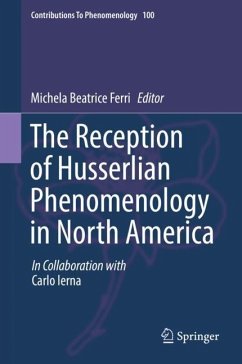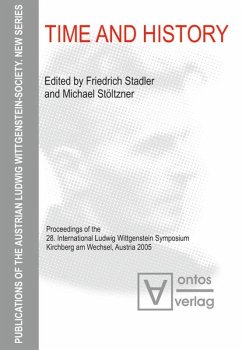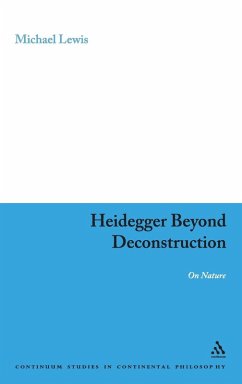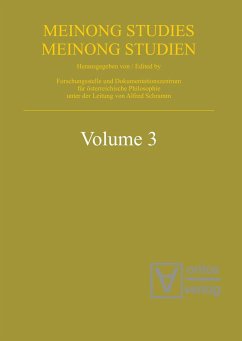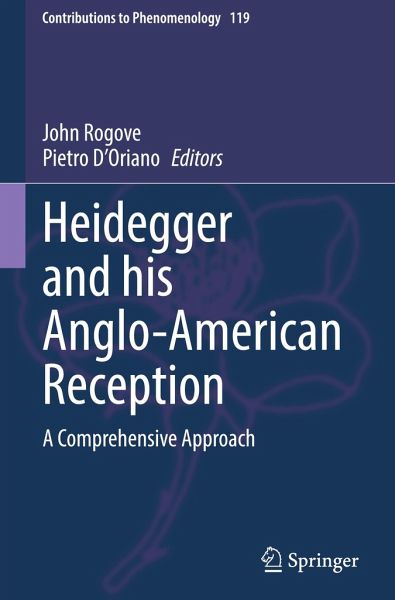
Heidegger and his Anglo-American Reception
A Comprehensive Approach
Herausgegeben: Rogove, John; D'Oriano, Pietro

PAYBACK Punkte
42 °P sammeln!
This book presents both a historical overview of the absorption of Heidegger's thought into English-language philosophical schools as well as a philosophical discussion of his thought provided by contemporary scholars. The text describes the ways in which a philosophical methodology and worldview seemingly so inhospitable to Anglophone academia has managed to find an unlikely home.This volume is roughly divided into two types of contributions: discussions of Heidegger's reception in the English-speaking world, and outstanding examples of English-language Heidegger scholarship. The first type i...
This book presents both a historical overview of the absorption of Heidegger's thought into English-language philosophical schools as well as a philosophical discussion of his thought provided by contemporary scholars. The text describes the ways in which a philosophical methodology and worldview seemingly so inhospitable to Anglophone academia has managed to find an unlikely home.
This volume is roughly divided into two types of contributions: discussions of Heidegger's reception in the English-speaking world, and outstanding examples of English-language Heidegger scholarship. The first type includes both historiographical accounts of the encounters between Heidegger's thought and the Anglo-American world, as well as their philosophical expositions and critiques. The second group of chapters reveal the latest contemporary scholarship by contemporary Heideggerians writing in English. It is moreover the first volume to bring together thinkers from both genealogies of Anglo-American Heideggerianism appealing to students and researchers working in both of these camps.
This volume is roughly divided into two types of contributions: discussions of Heidegger's reception in the English-speaking world, and outstanding examples of English-language Heidegger scholarship. The first type includes both historiographical accounts of the encounters between Heidegger's thought and the Anglo-American world, as well as their philosophical expositions and critiques. The second group of chapters reveal the latest contemporary scholarship by contemporary Heideggerians writing in English. It is moreover the first volume to bring together thinkers from both genealogies of Anglo-American Heideggerianism appealing to students and researchers working in both of these camps.





